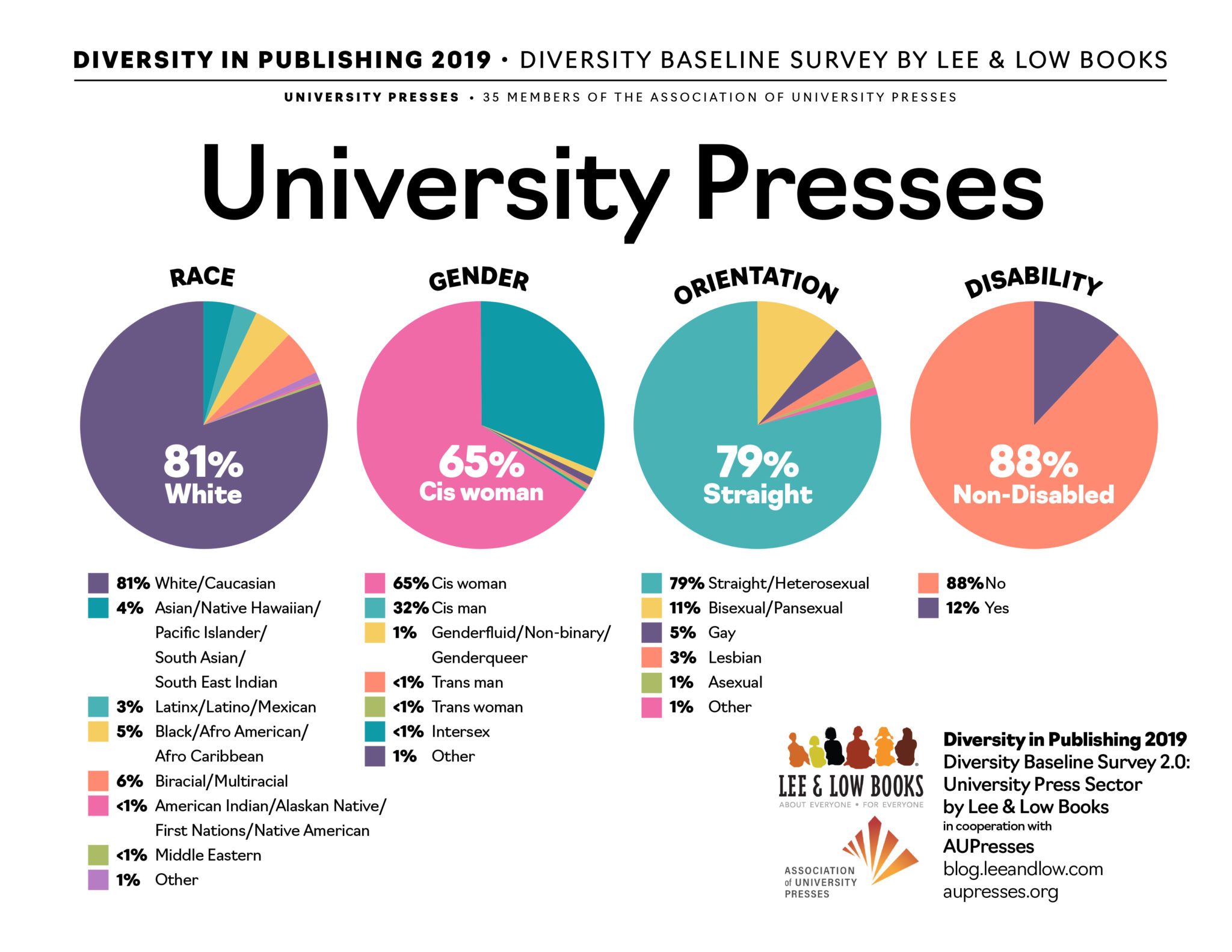“The Association of University Presses and its members aspire to hold justice, equity, diversity, and inclusion as values that guide our policies, practices, and publications. Upholding these values requires introspection, honesty, and reform of our current practices, the interests they serve, and the people and perspectives they exclude.” – AUPresses Statement on Equity and Anti-Racism
The Association’s Statement on Equity and Anti-Racism was originally proposed and drafted by the 2017-2018 Diversity and Inclusion Task Force. Peer review and revision were overseen by the Equity, Justice, and Inclusion (EJI) Committee after its formation in 2019, and approved by the AUPresses Board of Directors in spring 2020.
In early 2021, AUPresses released a report about US university press demographics, drawn from the Lee & Low Diversity Baseline Survey 2.0. Informed by the responses of more than 900 staff members at more than 30 member presses, it describes an extremely white industry segment that is also 64% cis women, 79% straight-identifying, and 88% non-disabled. Research and Communications Director Brenna McLaughlin contextualizes these findings in Reckoning with Whiteness in Scholarly Publishing, in the Scholarly Kitchen.

The Association persisted in working to advance equity, justice, and inclusion goals in the larger scholarly communications community, acknowledging as well that these goals must be embedded in all aspects of publishing and Association work if we are to see any attainment of them. To strengthen the foundation for this work, the AUPresses Board of Directors, Association staff, Committee and Task Force members, and all press directors were invited to join virtual training sessions in the form of a data-rich analysis of the devastating impacts of structural racism in November 2020 from the Racial Equity Institute, LLC (REI). A debrief and in-depth discussion of the REI Groundwater training was the subject of the first of now-monthly Activating Directors hangouts. Spearheaded by the EJI Committee in response to member feedback concerned that publishing leadership was less engaged in anti-racism and social justice work, these sessions allow for knowledge sharing and brainstorming across a wide range of topics, from the implementation of Codes of Conduct, to issues of gender equity and how pandemic realities shed light on needs for flexibility, generosity, and care within workplaces.
The EJI Committee has been the locus of considerable activity towards the goal of centering equity in our Association. Three Community Read programs over the past year brought members together to reflect on the insights raised by White Fragility by Robin DiAngelo (Beacon), Invisible People by Alex Tizon (Temple), and Why Indigenous Literatures Matter by Daniel Heath Justice (Wilfrid Laurier). Intentional dialogue with other committees about opportunities for collaboration in different spheres of work, a periodic newsletter to members, and a new UP Commons Equitable Workplaces Group are other EJI Committee initiatives.
AUPresses continues in a leadership role with the Coalition for Diversity and Inclusion in Scholarly Communications (C4DISC) and now provides a portion of the group’s administrative infrastructure. Numerous member press and Association staff are contributing to the development of two new Toolkits for Equity in scholarly publishing communities that will be hosted by C4DISC, one intended for Black, Indigenous, and People of Color who work in scholarly publishing, and one for Organizations.

